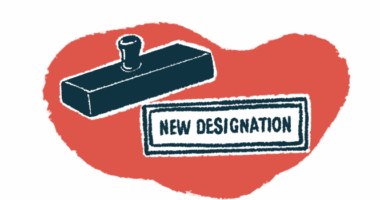Question Everything: How to Ask the Right Questions

Ana Municio/Unsplash
As I’ve described in my previous columns, knowledge is power. I feel very fortunate to have received my diagnosis of limb-girdle muscular dystrophy when I did. I was beginning physical therapy school and had just come to appreciate the power of questioning and research.
That said, the topic of today’s column is how proper questioning can be used to better understand a diagnosis. There are several ways that questions can be classified, but I will focus on one significant type for the sake of simplicity. This classification system involves background and foreground questions.
Let’s begin with an overview of background and foreground questioning. A background question is a foundational question that defines a topic, while a foreground question describes how something is affected by something else. Both of these types of questions are important for understanding a disease’s pathology.
As the name suggests, a background question refers to something behind you; it has already occurred and may or may not directly impact you. Examples of these questions include:
- What is muscular dystrophy?
- Why do I (or my child/family member) have this problem?
These questions can be answered by looking through textbooks, websites, and so on.
Unlike background questions, foreground questions lie before you and explain how the disease process directly affects you. Examples of these types of questions include:
- How will my disease progression affect me?
- Will I be able to achieve my desired lifestyle because of my symptoms?
Unfortunately, these answers cannot be found by reading books or websites. We must explore these questions with our healthcare providers.
Before moving on, let’s create an analogy for the relationship and importance of background and foreground questions. If we visualize questions as a tree, background questions would be the roots, and foreground questions the trunk. Just as you may or may not see the roots of a tree, background questions are the foundation from which foreground questions emerge. Therefore, background questions seek to address the literal roots of the problem, while foreground questions describe how it affects you.
I was initially reluctant to ask questions regarding my health, and started my journey figuring things out by myself. However, as I began my search, I quickly realized that it’s often easier to find one’s way (and answers) if we have a guide, which I did not.
As I gathered more information, I developed a great understanding of muscular dystrophy. However, I never figured out how it would affect me until much later, because I wasn’t asking the right people the right questions.
Please know that it is not selfish to ask questions about your health; if you don’t ask, who will? It’s the healthcare provider’s job to provide patient education (e.g., by answering questions) and help them develop self-efficacy. However, as previously described, we don’t know what we don’t know; therefore, questioning goes both ways. If we don’t ask (the right) questions, the healthcare provider may assume we understand or already know the answers.
Hopefully, it’s becoming apparent that it’s essential to recognize what something is before we can understand how it affects us. We must do our due diligence and research independently to use our time with our healthcare providers more efficiently. Sadly, they see many people with just as many sicknesses.
As a healthcare provider myself, who works with different people and ailments, I am reminded of a saying by author and newspaper columnist Regina Brett. She wrote, “If we all threw our problems in a pile and saw everyone else’s, we’d grab ours back.”
We must be aware of others and their situations, but at the same time recognize that we are important, too. For example, if you have ever been on a plane, you know that flight attendants tell everyone to put on their own masks first before helping others in the event of an emergency. In healthcare, patients come first, but not at the expense of ourselves or others.
To summarize, it is essential to find answers to background questions first before talking with a healthcare provider. Conducting prior research improves your understanding, allowing you to ask better questions.
Additionally, a better understanding allows you to recognize how much a healthcare provider is truly invested in you and your pathology. Finally, if someone is less familiar with your ailment, maybe it’s time to find a different provider.
One of the first steps to maintaining self-efficacy is to have self-worth. As stated in a previous column, sharing knowledge is genuinely caring.
***
Note: Muscular Dystrophy News is strictly a news and information website about the disease. It does not provide medical advice, diagnosis or treatment. This content is not intended to be a substitute for professional medical advice, diagnosis, or treatment. Always seek the advice of your physician or another qualified health provider with any questions you may have regarding a medical condition. Never disregard professional medical advice or delay in seeking it because of something you have read on this website. The opinions expressed in this column are not those of Muscular Dystrophy News or its parent company, Bionews, and are intended to spark discussion about issues pertaining to muscular dystrophy.








Bihari Dhanda
I am an Indian. But I am tense in my life. And my problem is that I am having trouble eating with my hands and having trouble walking. Please get this LGMD2B, dyspherlinopathy disease treated or kept in any organization. Please reply to my message.
Adeel Rizvi
Greetings Bihari Dhanda,
I can truly empathize with you regarding the difficulties associated with LGMD. In fact, my reason for joining this organization and writing entries was to learn more about pathology while sharing what I know. Hopefully, one day we will find a cure but until then all we can do is share our knowledge and hope for the best. FYI - I was born in Pakistan but moved to the US in childhood so I can only imagine the difficulties you must be going through. Please know that you are not alone and that there are many out there like you. We may have a unique condition but that makes us unique and special. If there is anything I can ever do for you, please don't hesitate to ask. If there are any specific questions, comments, concerns, or topics you want me to answer or cover - I would be more than happy to oblige. We all have one life and it is important we make are happy and that we also make it count. Stay safe and healthy.
Sincerely,
-Adeel
crissy
Thanks for this post, it is informative.